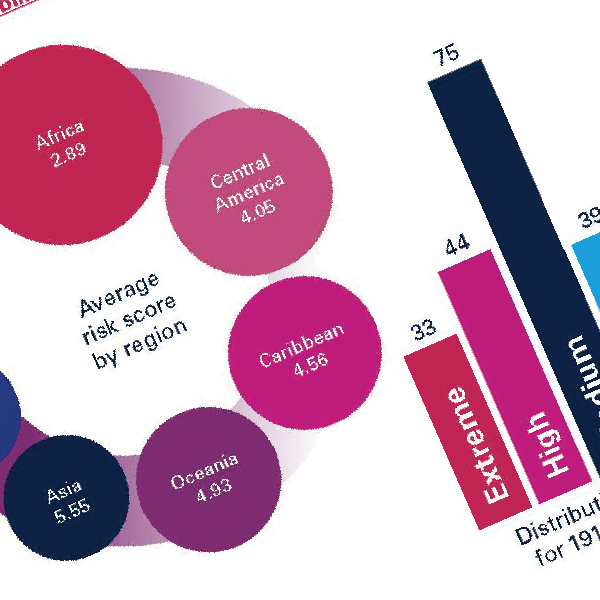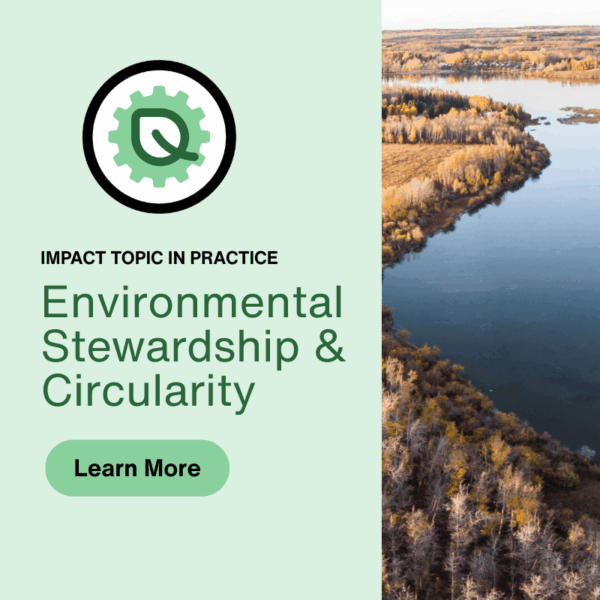To Zero Waste and Beyond: How B Corps Are Reducing Their Impact Through Circular Business Practices
April 14, 2021
From a Ski Resort to a Law Office, B Corps Discover New Ways to Reduce and Reuse Waste and Benefit the Economy
In committing to ensure their products and practices create benefit rather than harm, Certified B Corporations also take on the challenge of conserving resources and reimagining supply chains. Building on the concept of zero waste — cyclical systems that prevent waste and pollution and incorporate reuse of materials — B Corps are re-envisioning their workplaces, services, and business practices to help the Earth and the economy.
Trial and error is part of the process to identify what works and what doesn’t, says Mike Bower, Director of Facilities at Taos Ski Valley, a B Corp with 1,200 acres for skiing in New Mexico. As a business built — literally and figuratively — on the natural environment, Taos Ski Valley prioritizes energy efficiency, land stewardship, efficient water use, community engagement, and responsible waste management.
“Nothing is ever perfect, but you have to try, and soon you will find that perfection is in the process,” Bower says.
B The Change reached out on the B Hive, an internal communications and networking platform for B Corps, to learn more about zero-waste initiatives at Taos Ski Valley as well as Bates Wells, a B Corp law firm in London. Their examples illustrate how businesses in different industries — and locations ranging from mountain resorts to office buildings — are pursuing similar goals to establish circular systems that reduce impact, maximize value, and empower workers and consumers.

The Climate Justice Playbook for Business
This practical guide includes information to help business leaders understand the intersection of climate action and social justice and advance a justice-centered approach to climate action.
Focus on Food Waste at Taos Ski Valley
A decision to stop selling products in plastic bottles was the first step in Taos Ski Valley’s zero-waste journey. The B Corp ski resort added water bottle filling stations, says Bower, and then moved on to examine its recycling practices for other opportunities, especially those focused on reducing food waste.
“One of the best initiatives that we took on was concerning our food waste, where we felt we could really make the most conscious and effective change on so many levels,” he says. “We started researching different ‘in-vessel’ composting and food dehydration machines. Our first go at this pilot program led us to a food dehydration device that basically baked all of the moisture out of the food waste, while it churned the waste around with an auger.”
That device could process 150 to 200 pounds of waste in a 14- to 16-hour period and produce an inert carbon material that is used to enhance the rocky, mineral-heavy soil and reduce erosion, he says.
“This was our pilot program, and we wanted more and knew that we could do better,” Bower says. “Through a B Corp event and subsequent networking we partnered with BioCoTech Americas on a new commercial composting unit.”
The new machine has increased Taos’ composting intake capacity and efficiency, he says, and produces a nutrient-rich end product that can be used in numerous ways while also reducing waste.

Impact Topic in Practice Guide
This guide focuses on the Environmental Stewardship & Circularity Impact Topic, which asks companies to take a conscientious and sustainable approach and to become environmental stewards, demonstrating accountability and leadership. Download the guide for examples and resources to support your business in meeting the requirements within this Impact Topic.
Employees play a key role in Taos’ waste-reduction efforts, Bower says. “With the help of all of our staff, our Base Area Maintenance Team works to clean, sort, and weigh our recycling for data retrieval and processing,” he says. “They also do all of the collection, weighing, and adding of food waste to the composter. They do the process from start to finish to ensure all of our end materials are ready for transport or reuse.”
The B Corp has benefitted from other organizations and businesses, he says, including the New Mexico Recycling Coalition, Resource Reunity, BioCoTech Americas, and Integrated Veterans Services that shared advice and assistance on reducing waste.
“There are so many great resources and organizations out there just waiting to get excited with you and help you along the way,” he says. “People are genuinely so happy to share, so that we all win. I have met some really amazing and talented people who really know their stuff.”
Bower explains that establishing a waste-reduction program of this scale takes time and persistence, and he credits previous team members with setting the stage for Taos’ current waste-reduction success.
“There were great people working on this before I arrived here five years ago who paved the way,” he says. “Every year we just said, ‘If we could do a little more and keep pressing we will have something really special and better aligned with where we need to be as a responsible outdoor organization that takes our environmental efforts seriously.’ Nothing is ever perfect, but you have to try, and soon you will find that perfection is in the process.”

A Circular Move for Bates Wells
A helpful move to a new building that operated as a zero-waste-to-landfill office in 2015 accelerated Bates Wells’ waste-reduction practices, says Senior Operations Manager Megan Watkins.
“In addition to the recycling schemes the building provides, we introduced our own initiatives,” she says. “As well as running these in the office, we encourage people to bring things in from home where they may not have access to local facilities to recycle them.”
The waste-reduction initiatives in place at the London-based law firm include:
- Contact lens waste is collected for the Terracycle Acuvue Recycling Programme, which incorporates it to make hard-granulated plastic granules that can be used to produce plastic products, such as benches.
- Used coffee grounds are collected by bio-bean, a fellow B Corp that recycles them into advanced biofuels and coffee logs.
- Employees’ milk bottle tops (from home—the office uses glass bottles) are collected and sent to New Forest MenCap for recycling into plant pots, fence posts, traffic cones, and mesh to protect new trees.
- Used stamps are sent to RNIB, which sells them to raise money for its efforts to help people with vision loss.
Businesses looking to move toward zero waste can start by monitoring everything that comes in and out of the company and assessing what can be done to reduce waste, Watkins says. Everyone at Bates Wells plays a role in the B Corp’s waste-reduction efforts, she says, and it’s important to engage with them early about new procedures.
The law office uses posters and labeling to identify the correct bins for recycling, removed individual desk bins to avoid confusion, and provides information about the program as part of training for new hires.
Internal communications highlight recycling initiatives and seek new ideas on waste reduction from team members. New ideas and inspiration also can be found at events, Watkins says, especially those about the circular economy.
“We undertook a project to remove single-use plastic as much as possible from our operations. This includes our stationery, catering, and cleaning supplies,” she says. “We’re pleased to have achieved overall an 80% reduction to date and will continue to monitor this as new plastic-free alternatives come into the marketplace.”
Sign Up for our B The Change Newsletter
Read stories on the B Corp Movement and people using business as a force for good. The B The Change Newsletter is sent weekly.